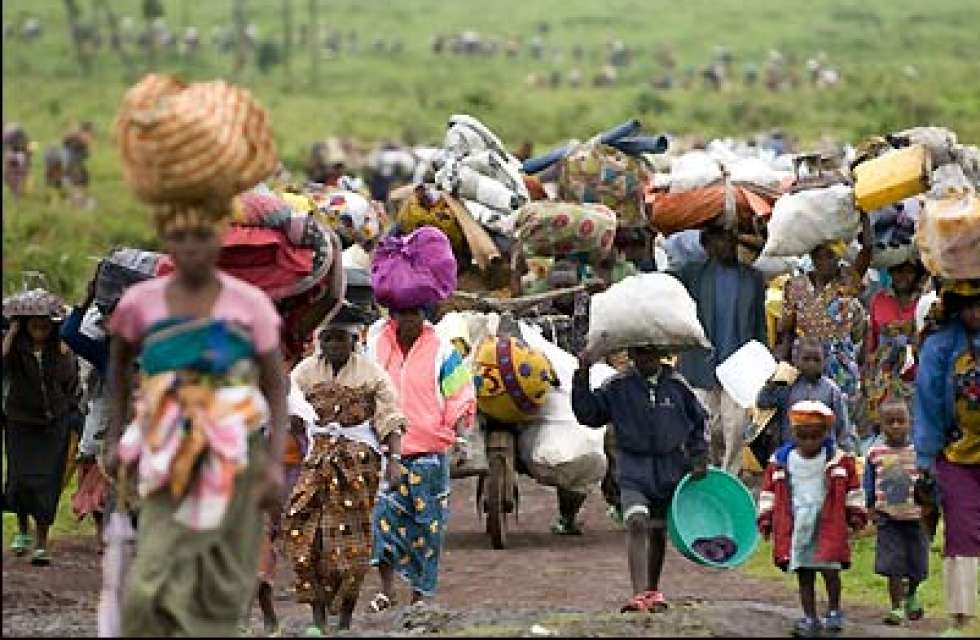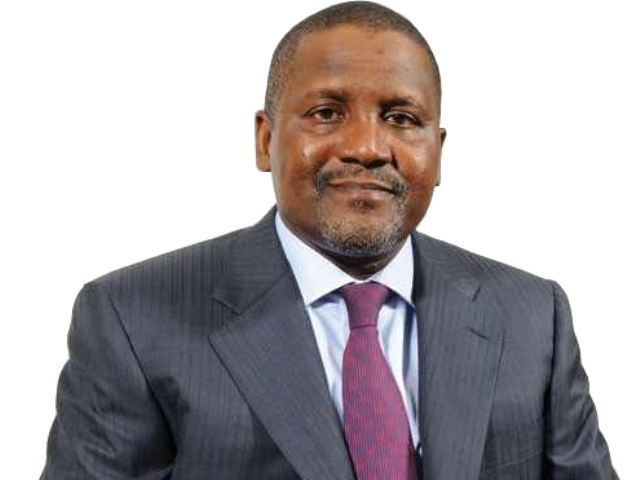Managing the humanitarian crisis in the Northeast

Hundreds of countries, companies and philanthropists on Tuesday May 24th converged in Istanbul, Turkey, for the first-ever World Humanitarian Summit.
The summit which opened on Monday was widely described as an unprecedented effort aimed at revamping humanitarian aid and global responses to modern-day crises besides finding practical solutions to the global humanitarian challenges.
UN Secretary-General Ban Ki-Moon said that the summit was convened as part of efforts to tackle what he described as ‘the worst humanitarian crisis since World War II.’
Ki-Moon said the summit must usher in new era of global solidarity, stressing that its main goal was to reaffirm the society’s commitment to humanity and humanitarian principles. “We must not fail the people who need us, particularly when they need us most.
“First, the best way to achieve a bold and courageous change is to make sure that leaders are there to deliver it.
“History will judge us by how we use this moment,” Ban said, while urging countries to come to Istanbul and show leadership in nascent efforts to tackle the great challenges of humanitarian crisis. “We must not let down the many millions of men, women and children in dire need,” he added.
Northeast Nigeria: a case study
Stakeholders in Nigeria say the summit seeks to, among other things, generate renewed focus on essential humanitarian commitments that are highly relevant to the people of the region affected by the Boko Haram insurgency.
The Information Officer of the UN Office for the Coordination of Humanitarian Affairs, Ms Kate Pond said, `The crisis in the Lake Chad Basin, including Niger, Nigeria, Cameroon and Chad, has continuously deteriorated over the last two years.
“Insecurity, violence by Boko Haram and counter-insurgency measures have uprooted over 2.4 million people, making it the fastest growing displacement crisis in Africa,” she said.
Pond said the conflict has dramatically exacerbated the vulnerability of Internally Displaced Persons (IDPs), adding that “in the worst-affected areas, almost half of the population – more than 9.2 million people – need assistance.
“More than three million of the IDPs are affected by food insecurity,” she added.
Stakeholders, therefore, underscore the need for the participants at the summit to join forces to create a major breakthrough in efforts to assist millions displaced by Boko Haram insurgency in the northeastern part of Nigeria.
Ahead of the summit, UN Under-Secretary-General for Humanitarian Affairs and Emergency Relief Coordinator, Stephen O’Brien undertook a four-day visit to Niger and Nigeria, and after his assessment of the humanitarian situation in Northeast Nigeria, said, “More than nine million people affected by the Boko Haram-related conflict across the Lake Chad Basin – 76 per cent of whom are in Nigeria – are grappling with dire conditions.
“The dire conditions will worsen if immediate humanitarian needs are not met. Around 20,000 internally displaced persons are living in communities close by.
“Insecurity in the area means that people are unable to access humanitarian assistance, leaving them in desperate need of food, clean water, basic services and protection.
“We have to listen to them (victims of the insurgency); we must respond to what they actually need,” he said.
The UN envoy stressed: “Our responsibility is to identify and meet with great urgency the immediate needs of saving lives and protecting civilians. At the same time, we need to make sure that girls and women are protected, while young boys are not taken to camps by factions of the fighting forces.
“We must make sure that there are opportunities for education and for families to stay together. It’s not enough to deliver aid today; we must also end need tomorrow. To stop Boko Haram and to protect women and children, we must first recognise that de-radicalisation is an essential part of humanitarian work and part of the platform to effective development.”
Speaking on the enormity of the crisis, Gov. Kashim Shettima of Borno said the 800 million dollars pledged by the World Bank to help rebuild the Northeast was grossly inadequate, in view of the challenges that trailed the insurgency.
“It is in the interest of humanity to rally round Nigeria over Boko Haram. The developed world gave Turkey two billion dollars to resettle refugees from Syria.“There are about two million IDPs from Borno, 20 Local Government Areas were overran by the Boko Haram insurgents and there is food crisis currently in the state,” he said.
Shettima underscored the need to adopt a holistic approach in efforts to address the challenges confronting the Northeast, warning that without such an all-inclusive approach, any other strategy would be futile and cosmetic.
“There has to be a holistic approach because we might win the battle but to win the war needs concerted efforts from all and sundry to address some of the underlying causes,’’ he said.
As he departed for the Istanbul summit, O’Brien pledged to make a strong case for the humanitarian crisis facing Northeast Nigeria, promising that he would bring it to the attention of world leaders at the summit.
“The humanitarian crisis in the Lake Chad Basin is appalling and that is why precisely I’m here, so as to personally witness the testimonies and discuss the priorities.
“When you look at the scale of the humanitarian needs here in the Lake Chad Basin, we want to make it the focal point of attention for the world communities as they assemble in Istanbul.
“They (world leaders) will think about these issues and how we can best meet the humanitarian needs of the people in crisis.
“The Lake Chad Basin represents a very serious current issue where all the factors that contribute to humanitarian needs are coming together at one time.
“The summit holds prospects for drawing attention to this humanitarian crisis here in the Northeast.
“It is very important that we bring this to the attention of all the world leaders and UN member states as well as the humanitarian actors who will be attending the summit,’’ he said.
O’Brien said that a special side-event of the summit would involve the launch of an appeal fund for addressing the humanitarian crisis facing the Lake Chad Basin.
“We will have Gov. Kashim Shettima there and we will have some people from agencies such as the International Committee of the Red Cross.
“Persons, like me, who have eyewitness accounts of the humanitarian crisis will bring them to the attention of the world community because it is our priority to support humanitarian needs around the world.
“We need to expose the humanitarian crisis in Northeast Nigeria to the world’s attention; we need to do this in order to secure the resources that we require to enable us to meet the people’s needs,’’ he said.
O’Brien further said that even though the UN had made an appeal for the donation of 248 million dollars to alleviate the humanitarian crisis in the Northeast, the estimate was inadequate considering the magnitude of the crisis and ought to be updated.
He however said that the request was being reviewed to 318 million dollars, as additional 70 million dollars would be required to address the food crisis in the area this year alone.
“Investing in humanitarian action now is the best way to spend to save for the future. This is the best way to invest in the people of Nigeria and to save lives and livelihoods today and tomorrow,” he said.
“The current scale up in food assistance alone requires an extra 70 million dollars and a scale up of this magnitude is impossible without more resources and more personnel, especially experienced humanitarians,” he said.
The UN Resident and Humanitarian Coordinator in Nigeria, Ms Fatma Samoura, said that she was adopting a robust advocacy strategy in dealing with international donors.
“I’m going to establish a special working group to attract the world attention to the appalling situation regarding the IDPs and their host communities in the northeastern part of Nigeria.
“We are calling on NGOs working on food security, nutrition and also in health, water and sanitation to augment the exiting capacity in IDPs camps and within the host communities,’’ she said.
Meanwhile, the UN Special Envoy for Education, former British Prime Minister Gordon Brown, has said that the new “Education Cannot Wait Fund’’ would be launched at the two-day summit.
The immediate aim of the Fund is to raise 3.85 billion U.S. dollars within the next five years.
Brown said that the Fund would create a ‘major breakthrough’ in efforts to assist millions of children whose education had been disrupted by conflicts and natural disasters.
The new fund will build on the recent Syrian initiative promising one million Syrian refugees schooling in Turkey, Lebanon and Jordan but this will also apply to Nigeria where the Boko Haram insurgency has led to the closure of over 5,000 schools.
With the summit held and over, analysts are optimistic that commitments made by hundreds of countries, companies and philanthropists as well as the launching of ‘Education Cannot Wait’ fund will all be realised in good time and with all hands on deck, the future is bright for humanitarian struck parts of the world, especially in the Northeast of Nigerian and neighbouring Chad.








